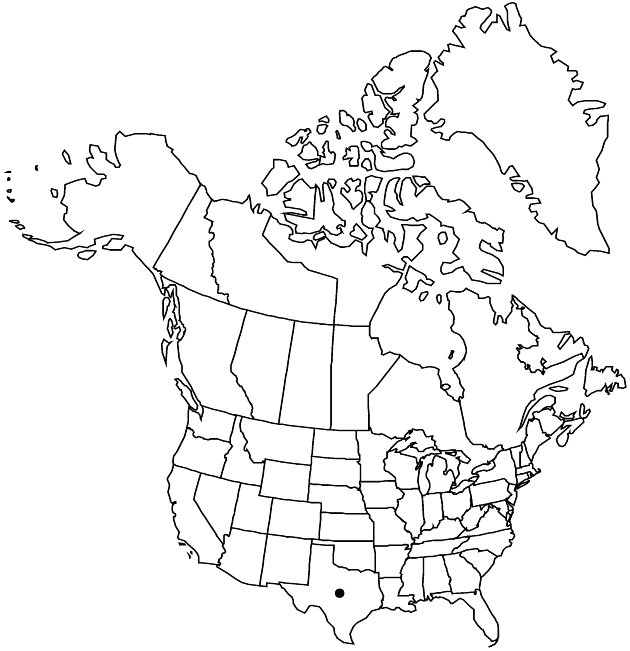Difference between revisions of "Xanthisma texanum var. orientale"
Rhodora 76: 14. 1974.
Treatment appears in FNA Volume 20. Treatment on page 385.
FNA>Volume Importer |
FNA>Volume Importer |
||
| Line 46: | Line 46: | ||
|publication year=1974 | |publication year=1974 | ||
|special status= | |special status= | ||
| − | |source xml=https://jpend@bitbucket.org/aafc-mbb/fna-data-curation.git/src/ | + | |source xml=https://jpend@bitbucket.org/aafc-mbb/fna-data-curation.git/src/f50eec43f223ca0e34566be0b046453a0960e173/coarse_grained_fna_xml/V19-20-21/V20_877.xml |
|tribe=Asteraceae tribe Astereae | |tribe=Asteraceae tribe Astereae | ||
|genus=Xanthisma | |genus=Xanthisma | ||
Revision as of 20:31, 16 December 2019
Bodies mostly orbiculate to depressed-elliptic (1–2 × 1.5–3.5 mm distal to widest point), apices obtusely cuspidate, flared distally, ovate portion 1.5–2 × 2–3 mm (distal to widest point). 2n = 8, 10, phyllaries ± expanded distal to stalks.
Phenology: Flowering spring–fall.
Habitat: Prairies, open woods, and disturbed sites
Elevation: 0–200 m
Discussion
J. C. Semple (1974) recognized two forms of var. orientale, the typical form having whitish phyllary margins, and forma rubrum Semple, red. Forma rubrum is rare but is found mixed with the typical form throughout the range of var. orientale.
Selected References
None.
Lower Taxa
None.
